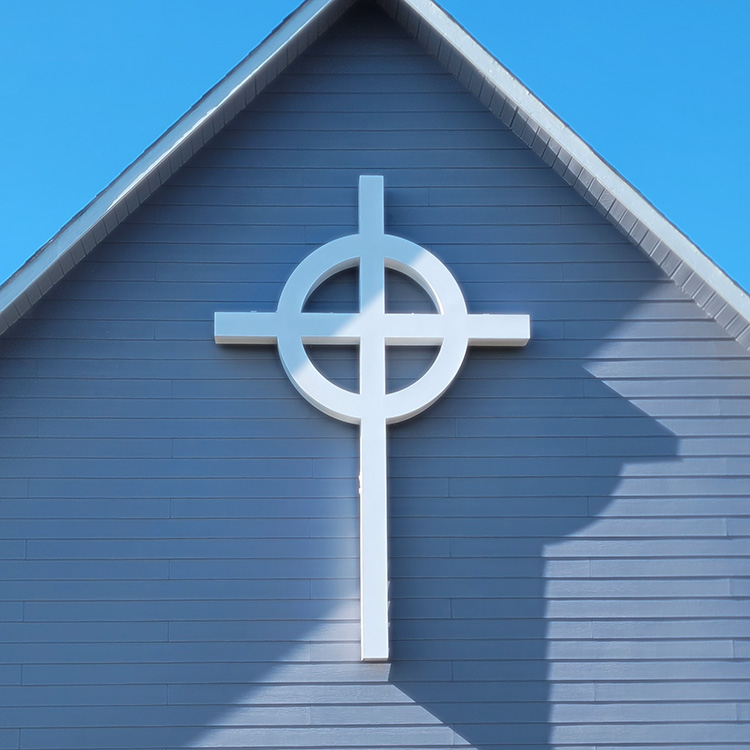What Episcopalians Believe
Episcopal belief traces back to the practices of the early church in the 1st Century. Our beliefs are expressed in our liturgy which descends from Jewish worship practices at that time. The first Christians based their services on synagogue practice of Bible reading and prayer while also including a Eucharist as a reminder of Jesus’ death and resurrection and the implications that has on our lives together as his followers.
Our beliefs can be found in the Nicene and Apostles’ Creeds and in the Book of Common Prayer (BCP). The Nicene Creed dates from the Council of Nicaea in 325. It was revised at the Council of Constantinople in 381 and distributed broadly through the Council of Chalcedon in 451. Culminating years of discussion about Jesus’ person, it expresses his full divinity along with his full humanity. It also asserts the full divinity of the Holy Spirit. The Creed is recited by all of us every Sunday as part of the Eucharistic service.
The Apostles’ Creeddates from the 2nd Century is considered the authentic expression of the beliefs of Jesus’ apostles. In early Church practice, baptismal candidates were expected to recite it before being baptized. Its three sections affirm belief in God the Father, God the Son and God the Holy Spirit. It is used today in baptismal services, in the Daily Offices, and in other services of the Church. The Book of Common Prayer is the official book of worship for the Episcopal Church. It contains all the prayers with instructions so that all members of the Church nationwide may share in common worship. It was translated from Latin into English first in 1549 in England. The first version published in the United States dates from 1789, and it has been revised in 1892, 1928 and finally in 1979. The BCP contains the calendar of the church year. There are six Eucharistic prayers, two in traditional language (Rite I) and four in contemporary language (Rite II). The BCP is available for free HERE.
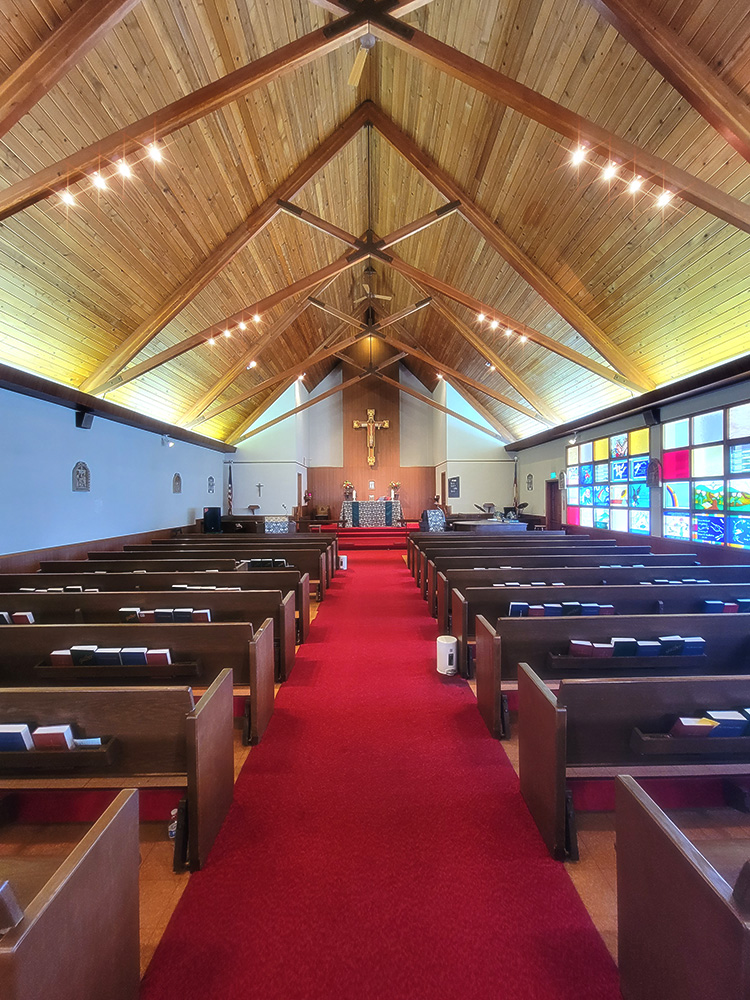
Celebrations
Gatherings for celebration of who we are as people of God is central to Episcopal Church life. We celebrate our joys, losses and thanksgivings, and pray for God’s intercession in our own lives and those for whom we especially care. Celebrations and worship services in the Episcopal Church are noted for their graceful beauty, intellectual stimulation and musical excellence. Everyone is invited to attend and participate; visitors and newcomers are always welcome.
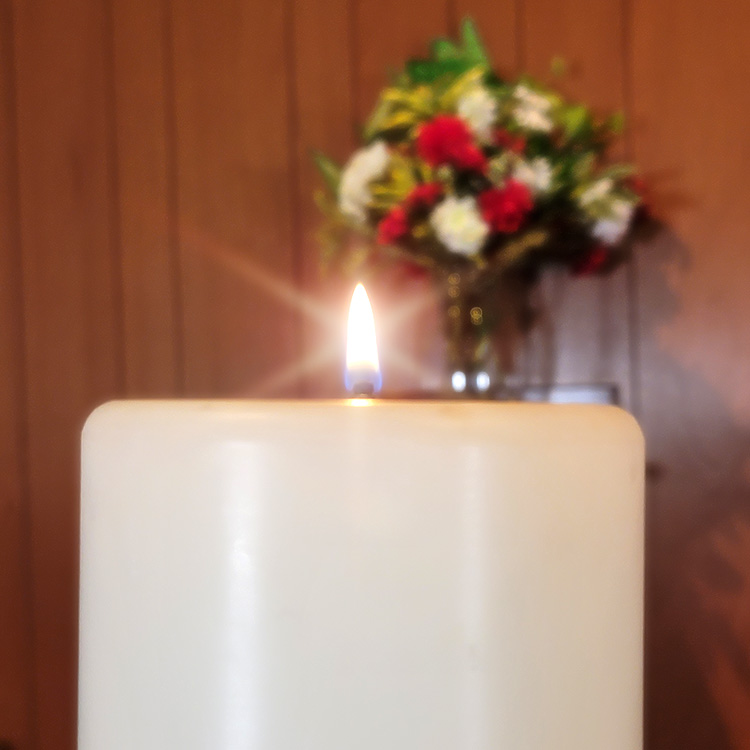
How Episcopalians Worship
Our worship is centered in regular communion with God and one another through celebration of the sacraments, the holy things which remind us of our identity as children of God. Of primary importance are water, bread and wine.
Water is the symbol of baptism, whereby we are brought into God’s special community, the church, and commit ourselves to follow Jesus Christ as Lord and Savior. In doing so, we affirm that through Jesus’ life, death and resurrection, our sins have been forgiven and that we share in a new spiritual life which is eternal.
Bread and wine were used by Jesus as signs of his life among us; the bread represents his body, and the wine his blood. Each time we receive the consecrated (blessed) bread and wine, we receive Christ anew into our selves and are made whole with Christ and God.
Our primary worship service is celebration of the Holy Eucharist, or communion, wherein bread and wine are consecrated and distributed to those who have been baptized. Prayers are said, and there is a corporate confession of sin followed by a prayer of absolution.Scripture is read and interpreted through a sermon or homily. The Peace of God is shared in recognition of God’s call for us to be at peace with one another in the name of Christ. Songs of praise are sung, and colorful vestments are worn by the clergy in celebration and praise of God’s love and glorious Creation.
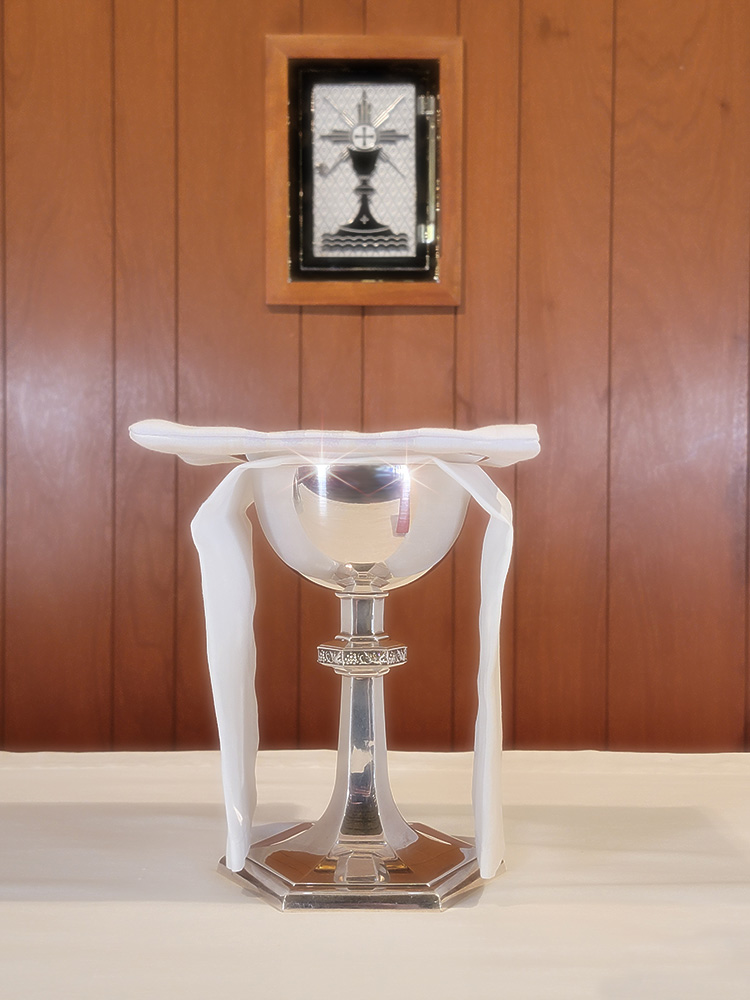
Worship Service
A typical worship service includes:
- Opportunity for quiet meditation and prayer;
- Joining with others in singing hymns of praise to God (on the Sundays when we have a pianist or organist);
- Hearing scripture read and interpreted in sermons or homilies for today’s world issues;
- Reciting familiar and comforting words of the Lord’s Prayer, psalms, creeds and other prayers;
- Praying for individual and community concerns;
- Sharing in the blessing and receiving of bread and wine as reminders of Christ’s presence with us today;
- Being sent forth with renewed energy and spirit to serve the world.
Our 9:30 services alternates between using traditional language liturgy and contemporary language. Worship is at the heart of who we are as followers of Jesus Christ, believing that we are all children of God.
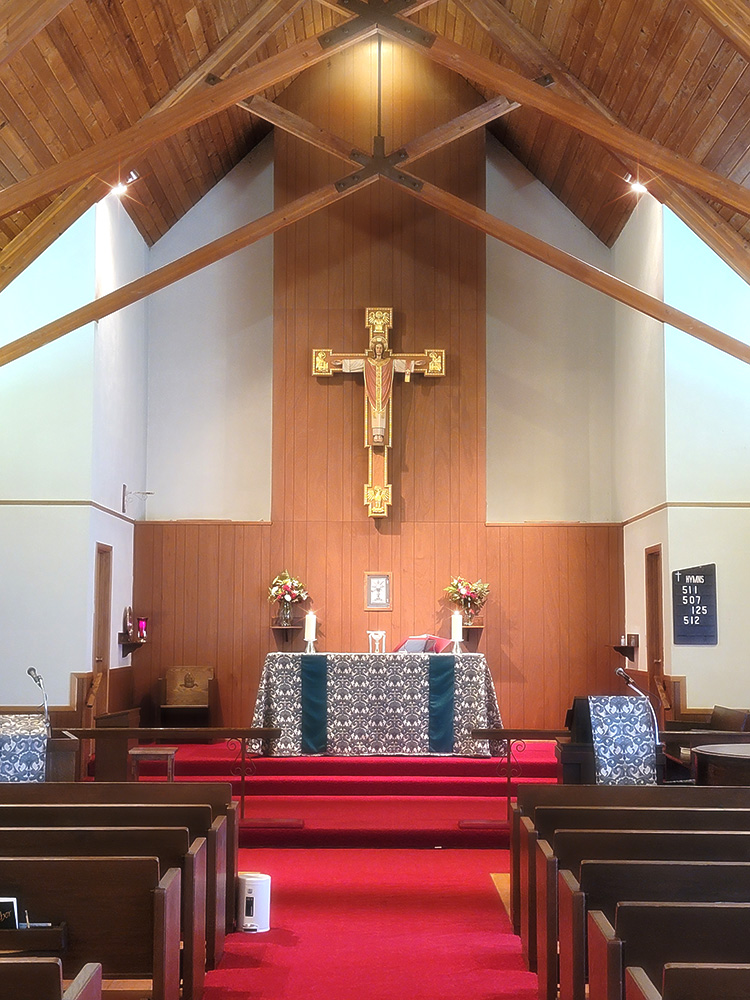
How to Visit All Saints’
When you visit, don’t hesitate to introduce yourself as a visitor to an usher or member of the clergy at the door. We’re a small church, very informal and welcoming. You’re invited to stay after the service for coffee hour at which refreshments are served and we take time to catch up with each other and get to know those who visit with us. Ask questions about the building, the program, the congregation’s ministry or anything else; Episcopalians like to talk about what their church means to them!
